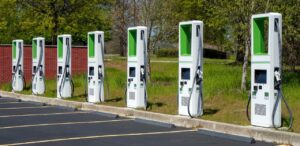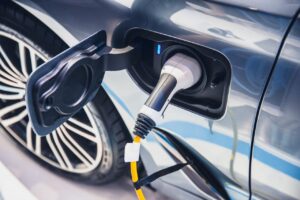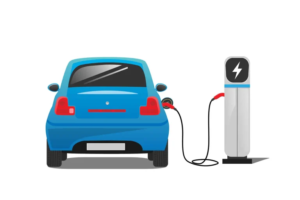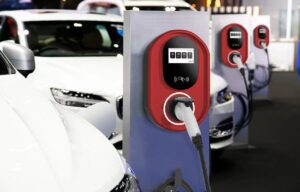Are you considering switching to an electric vehicle (EV) but have questions about charging? Perhaps you’re a new EV owner and looking for some insights into the world of EV charging. You’re not alone. As an expert in the electric vehicle charging industry, I’ve encountered a wide range of questions from potential and existing clients regarding this topic. To help you navigate this evolving landscape, I’ve compiled seven frequently asked questions and their answers to help clarify any confusion about electric vehicle charging.
What Are The Different Types of Electric Vehicles?
I often receive questions about the types of electric vehicles (EVs) available in the market. It’s essential to understand the differences between various EV types, as they impact charging requirements.
Categories of Electric Vehicles
There are five main categories of electric vehicles:
- EV: A general term for electric vehicles powered entirely by an electric motor using a rechargeable battery.
- BEV (Battery Electric Vehicle): Runs solely on an electric motor and rechargeable batteries, producing zero emissions.
- HEV (Hybrid Electric Vehicle): Combines gasoline engines with electric motors to reduce fuel consumption.
- PHEV (Plug-in Hybrid Electric Vehicle): Similar to HEVs but with larger batteries that can be recharged via regenerative braking and plugging into an outlet.
- MHEV (Mild Hybrid Electric Vehicle): Offers electric assistance to an internal combustion engine, improving fuel efficiency.
How Far Can Electric Vehicles Travel on a Single Charge?
One common concern among potential EV owners is the vehicle’s range on a single charge. In my experience, most modern electric cars can easily cover over 200 miles per charge, while some advanced models boast ranges of up to 400 miles. These distances are generally sufficient for daily commuting, and improvements in battery technology continue to extend these ranges.
Impact of External Factors
It’s worth noting that extreme temperatures can reduce mileage due to increased air conditioning or heating use.
Can I Install an Electric Car Charging Station at Home?
Absolutely! Many people inquire about installing a charging station at home. This is a great idea, as having your own charger makes EV ownership more convenient.
Types of Home Charging Stations
There are three main types of chargers available for home installation:
- Level 1: The slowest type, providing around 2.3 kWh of electricity and approximately 6 to 8 kilometers of range per hour.
- Level 2: Requires professional installation and offers faster charging speeds. These chargers can provide between 7.4 and 22 kWh of power, adding roughly 40 to 120 km of range per hour.
- Level 3 (DC Fast Chargers): The fastest option, primarily found in public charging stations. These chargers can deliver up to 350 kWh, although outputs of 50, 125, and 150 kWh are more common. Most electric vehicles can reach 80% charge in under an hour with a Level 3 charger.
How Much Does It Cost to Charge an Electric Vehicle?
Charging costs can vary depending on your driving habits, the vehicle’s battery size, and electricity rates. Generally, a full charge can cost around €30 or $30. Charging at home will increase your electricity bill, but the overall cost to power an electric car remains much lower than gasoline or diesel expenses.
Solar Panels and Charging Costs
In my experience, installing solar panels can further reduce charging costs and make EV ownership even more eco-friendly.
How Long Does It Take to Charge an Electric Car?
Charging Times and Factors
Charging times depend on the type of charging station you’re using (Level 1, 2, or DC) and your vehicle’s battery capacity. Generally:
- Level 1 chargers take 14 to 16 hours for a full charge.
- Level 2 chargers can reach 80% in three to five hours.
- DC fast chargers can achieve 80% in just 20 to 30 minutes.
It’s worth noting that charging speeds slow down considerably as they approach full capacity due to battery chemistry.
How Long Do Electric Car Batteries Last?
Battery longevity is a crucial concern for EV owners. Most manufacturers offer warranties of six to eight years on their batteries. With current advancements in battery technology, I expect battery life to extend even further in the future.
Tips for Optimal Battery Lifespan
To optimize battery lifespan, it’s advisable to keep your vehicle charged between 20% and 80% of battery capacity and only charge when necessary.
Are Electric Cars Cleaner than Gasoline-Powered Cars?
Environmental Benefits
Yes, even if coal is used to generate the electricity needed for charging, electric cars are still cleaner than gasoline-powered vehicles. Over their life cycle, electric cars have a significantly lower carbon footprint and don’t emit toxic exhaust emissions. As the energy grid becomes more sustainable, electric cars will become even cleaner.
I hope this guide has been helpful in answering some of the common questions I encounter regarding electric vehicle charging. If you have any further questions or need assistance in selecting the right charging solution for your needs, please don’t hesitate to reach out.
How Can I Find Public Charging Stations Near Me?
Utilize Apps and Websites for Real-Time Information
One of the most common questions from EV owners is, “Where can I find a charging station near me?” Fortunately, several apps and websites can help you locate nearby charging stations. Apps like PlugShare, ChargePoint, and Electrify America provide real-time information on charging station locations, availability, and even user reviews. Many electric vehicle manufacturers also offer their own apps with built-in charging station locators.
Check Station Locations and Requirements
Keep in mind that public charging stations may be located in a variety of places, including shopping centers, public parking lots, office buildings, and more. Additionally, some charging networks may require a membership or subscription, so it’s essential to check the details and requirements of each station.
Can I Use Renewable Energy to Charge My EV?
Charge Your EV with Solar Power
Yes, you can! One of the great advantages of electric vehicles is their compatibility with renewable energy sources. If you’re environmentally conscious and want to reduce your carbon footprint even further, you can opt to charge your EV using solar power, wind energy, or other renewable sources. Solar panels installed at your home or workplace can generate clean electricity to charge your EV.
Benefit from Net Metering and Incentives
Many solar installations come with net metering, allowing you to sell excess energy back to the grid, offsetting your electricity costs. Moreover, there are government incentives and tax credits available for homeowners who install solar panels, making it a cost-effective and sustainable option.
Conclusion
In conclusion, electric vehicles and their charging infrastructure have come a long way in recent years, with developments continuing at a rapid pace. While there are still questions and misconceptions about electric cars, it’s important to know that they are a more environmentally friendly and economical choice than gasoline-powered vehicles.
As a business owner and supplier of electric vehicle charging stations, I’ve seen firsthand how these products have made it easier for people to own and use electric cars. It’s crucial to educate yourself about the various options and benefits of electric cars to make informed decisions.
I hope this article has provided some clarity on frequently asked questions related to electric vehicle charging. If you have any further queries or need more information, please don’t hesitate to get in touch with me. Together, we can drive the transition to a more sustainable and eco-friendly future.
Disclaimer: The information in this article is based on my personal experience and expertise. It is essential to do thorough research and consult professionals before making any decisions.
Thank you for reading, and I hope you found this information helpful. If you’re interested in learning more about electric vehicles, charging stations, or other related topics, please feel free to visit our website or contact us directly.
Author’s Note: As the marketing manager of an electric vehicle charging equipment company, I’m dedicated to helping businesses, commercial establishments, and residential communities find the right charging solutions for their needs. Our company focuses on providing high-quality, intelligent, and fast-charging solutions to support the growing electric vehicle ecosystem. I am passionate about promoting electric vehicles and sustainable transportation to create a cleaner, healthier, and more sustainable world.







